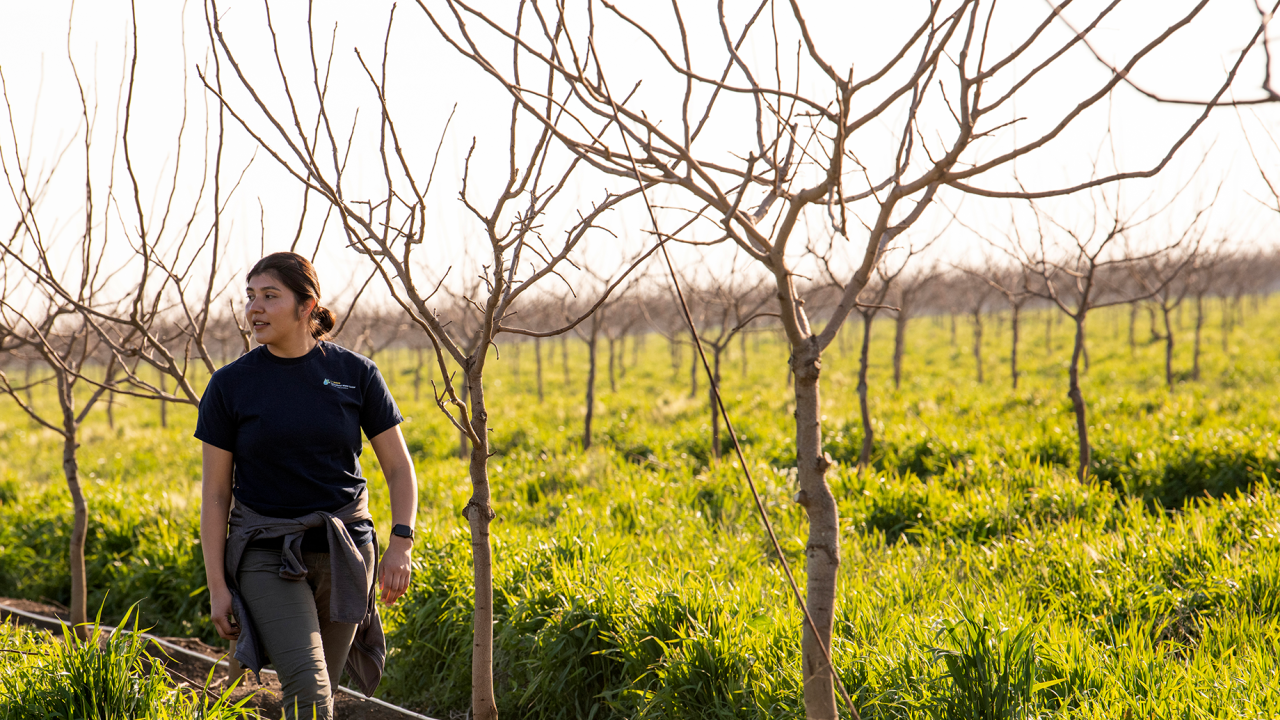
When Protecting American Businesses Backfires
Proposed Trade Policies Could Spell Disaster for California Farmers
Tariffs and trade policy will be central issues as a new administration takes office in January and a new session of Congress unfolds. President-elect Trump has proposed 10%–60% tariffs on imported goods. In a new issue of ARE Update, UC Davis Distinguished Professor Emeritus Colin Carter and co-authors Sandro Steinbach and Yasin Yildirim from North Dakota State University suggest that such tariffs will invite retaliatory tariffs from U.S. trading partners and that these tariffs will hit California agricultural exports hard: Colin Carter says, “If a significant new trade war develops, California could see a quarter of its agricultural exports wiped out, costing the state’s economy $6 billion annually.”
As a growing bipartisan movement for protectionism builds in Washington DC, leaders across the political spectrum have called for import tariffs and trade restrictions to protect domestic industries from imports. Yet the 2018/19 trade war, which led to retaliatory tariffs and billions in lost export revenue, shows that another, broader round of import tariffs would likely be misguided.
During his campaign, President-elect Trump proposed a 60% tariff on all goods from China, with a 10% tariff on goods from all other countries. Assuming a tit-for-tat retaliation from the countries subject to these new tariffs (consistent with what was seen during the last trade war), the United States could expect to see a 60% import tariff on all U.S. goods entering China and a 10% import tariff on all U.S. goods in the rest of the world.
The authors of the new study explored the implications of these potential tariffs on California agriculture. They found that some crops that rely heavily on trade, such as pistachios, dairy, wine, and almonds, would be hit the hardest. The pistachio industry alone could lose up to $1 billion annually, with a combined loss to all tree nut producers of $1.8 billion. They also found that five counties in the Central Valley—Fresno, Kern, Tulare, Merced, and Imperial counties—could reach annual export losses of $983 million, $842 million, $691 million, $464 million, and $213 million, respectively.
Many agricultural commodities are currently heavily reliant on Chinese markets for their exports. If these policies are enacted, particularly without significant efforts to identify new markets like India, Japan, and South Korea. California agriculture will experience substantial losses of up to $6 billion from a new trade war.
And, as Sandro Steinbach notes, the damage from these policies would persist: “If global trade tensions escalate, California’s agriculture could face lasting challenges, with shrinking export markets and declining revenues that would damage the industry for years to come.”
To learn more about the potential implications of a new trade war, read the full article by Colin A. Carter, Sandro Steinbach, and Yasin Yildirim: “Further Trade Wars Will Harm California Agriculture,” ARE Update 28(1): 5–8. UC Giannini Foundation of Agricultural Economics, online at https://giannini.ucop.edu/filer/file/1730229967/21165/.
ARE Update is a bimonthly magazine published by the Giannini Foundation of Agricultural Economics to educate policymakers and agribusiness professionals about new research or analysis of important topics in agricultural and resource economics. Articles are written by Giannini Foundation members, including University of California faculty and Cooperative Extension specialists in agricultural and resource economics, and university graduate students. Learn more about the Giannini Foundation and its publications at https://giannini.ucop.edu/.
Media Resources
Ria DeBiase, Communications Director, Giannini Foundation of Agricultural Economics, (530) 752-3508, rwdebiase@ucdavis.edu.
Colin A. Carter, Distinguished Professor, Department of Agricultural and Resource Economics, UC Davis, cacarter@ucdavis.edu.
Ellen M. Bruno, assistant professor of Cooperative Extension, Department of Agricultural and Resource Economics, UC Berkeley and Co-editor, ARE Update, Giannini Foundation of Agricultural Economics, ebruno@berkeley.edu.